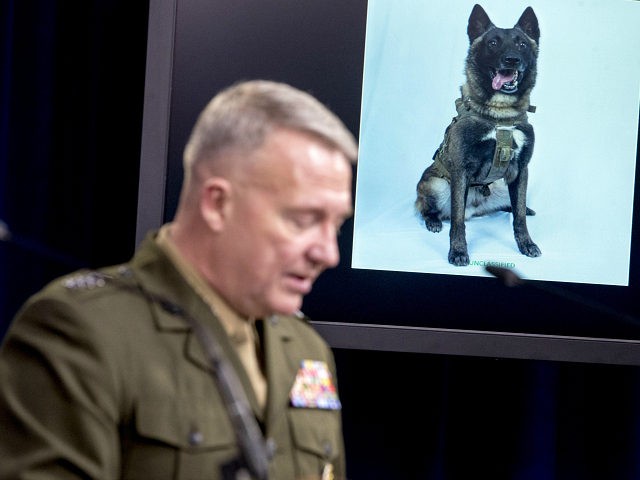TEL AVIV — Attacking Israel would be a “great mistake” on Hezbollah’s part, a U.S. general touring the region said this week, adding it would not end well for the Iran-backed terror group.
Gen. Kenneth McKenzie, the commander of CENTCOM, visited Lebanon, Saudi Arabia, Iraq, Bahrain, Jordan, Qatar and Kuwait on a major tour of the region for the first since the coronavirus pandemic kicked off in the Middle East.
His stop in Beirut came amid major protests from Hezbollah, which charged the U.S. with meddling in internal affairs.
While McKenzie acknowledged Hezbollah “remains a problem,” he went on to suggest the U.S. recognizes its influential role in Lebanon, according to a readout from a press briefing released Tuesday.
“We’d be – I’d be blind to say we don’t see it [Hezbollah] there. We recognize that local people there in Lebanon have to make accommodations as a result of that,” he said.
But he warned any attempts to target Israel would end badly for the Iranian terror proxy.
“I think it would be a great mistake for Hezbollah to try to carry out operations against Israel. I can’t see that having a good ending.”
McKenzie also visited U.S. troops in eastern and southern Syria as well as meet the new prime minister of Iraq for the first time.
His visit to Beirut was marred by protests, some waving Hezbollah flags.
According to the U.S. embassy, McKenzie’s visit included “a brief stop at memorials honoring the memory of those who have perished in service to their country.”
However, a plan to hold a memorial for the 241 U.S. service personnel killed in a 1983 bomb attack was thwarted by protesters, the Reuters news agency reported, citing Lebanon’s al-Manar broadcaster.
The U.S. blames Hezbollah for the 1983 attack, which came shortly after the bombing of the U.S. embassy in Beirut.
Lebanon is facing an acute financial crisis, with the Lebanese pound losing some 80 percent of its value since October of last year. Last week, Hezbollah leader Hassan Nasrallah slammed U.S. Ambassador to Lebanon Dorothy Shea as a “military ruler” interfering in the country’s internal affairs after she charged the party with stealing billions of state funds.
“Since the new ambassador arrived in Lebanon… she has dealt with Lebanon as though she is a military ruler, or a high commissary, as though she has authority,” Nasrallah said.
“Every day she attacks [Hezbollah]… she insults and offends us,” Nasrallah said.
“She is pushing the Lebanese toward infighting, sedition and civil strife,” he said.
Nasrallah said he would order Hezbollah lawmakers in Lebanon’s parliament to call on the foreign ministry to reprimand the American envoy.
After Shea criticized Hezbollah, a Shi’ite judge ruled that Lebanese media were banned from interviewing her on the basis that her comments had incited sectarian strife.

COMMENTS
Please let us know if you're having issues with commenting.